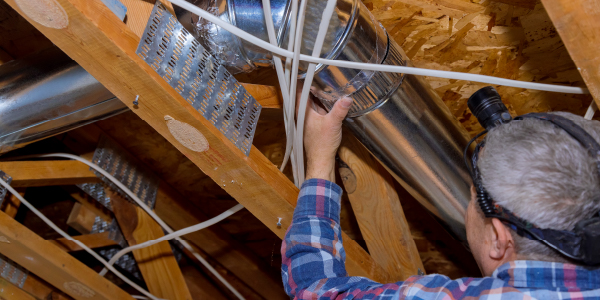10 Questions to Ensure an Energy-Efficient New Home
The problem of how to make your home more energy efficient is as old as time — or at least, as old as utility bills. But once you start shopping around for a new house, the question “How do I lower my electric bill?” becomes a little different.
Now you’re hunting for a place that you’ll need to improve as little as possible; somewhere that offers the highest comfort at the least expense. And finding that treasure means knowing precisely what to ask your future home’s owner or realtor. Here are 10 questions you should know the answer to before you buy.
1. How old is the HVAC system?
As time goes by, newly manufactured heating and cooling systems become more energy efficient. Ever-tightening federal standards are part of that, as is the fact that technology keeps getting better. The older the HVAC system, the higher the risk of inefficiencies.
2. Is the ceiling air sealed?
Remember the importance of SEALING YOUR CEILING? If it isn’t properly air sealed, you run the risk of losing your conditioned air into unconditioned areas such as an attic, leading to higher electricity use. Sealing the ceiling also keeps hot attic air from getting into your house during the summer.
3. How old is the water heater?
The “gas vs electric water heater” debate may never be settled. But one thing we can all agree on is that older water heaters are less likely to run as efficiently as newer models. Make sure you know how old the water heater is before you make an offer. If it’s on its last legs, consider installing a new ENERGY STAR® certified HEAT PUMP WATER HEATER after you buy the house (and don’t forget to take advantage of our $800 POWER MOVES RESIDENTIAL REBATE).

4. Are the ducts leaking air?
Any air leak is bad for energy efficiency, and that’s especially true for ductwork. Leaks also cause the furnace and cooling system to work harder, which may lead to a shorter life for the system as a whole. Plus, a leak means you may not get that delightfully warm (or cool) air all the way back to the luxurious master bedroom.
5. What kind of thermostat does the home have?
Knowing how to save money on energy costs includes looking for a home with a programmable thermostat. This technology (which you might remember from our RESIDENTIAL REBATES FOR HOMEOWNERS post) makes saving energy easier by timing your home’s heating and cooling around your schedule. But is it a feature of the home you’re buying?
6. Are the appliances in the home ENERGY STAR® certified?
ENERGY STAR certified appliances are held to high standards of energy efficiency. You’ll end up with lower bills in a home that includes an ENERGY STAR clothes washer, refrigerator or dishwasher — even the huge new flat screen TV in the family room.
7. How airtight are the windows? Are storm windows also present?
Air leakage around windows is one of the more common home energy problems. Newer windows are the most likely to be airtight, but you’ll still want to inspect them. If the windows are older, storm windows can provide some additional protection.
8. What about the doors?
Energy efficient doors can save energy in the home. If you can see light around the frame of the door, or feel a noticeable difference in temperature, it likely means there’s an air leak.
9. Will the seller chip in some cash for improving the home?
Just because a house isn’t energy efficient doesn’t mean you have to cross it off your list. When you know specifically what needs to be improved, it’s worth asking the seller to pitch in to help cover the costs.
10. Do you need a professional energy audit?
Okay, this one’s a trick question — the answer is that a professional can help you save energy by giving you a better, more precise idea of exactly what needs attention. If you’d like to set up an energy audit before you buy a new home, contact YOUR ENERGY ADVISOR today.